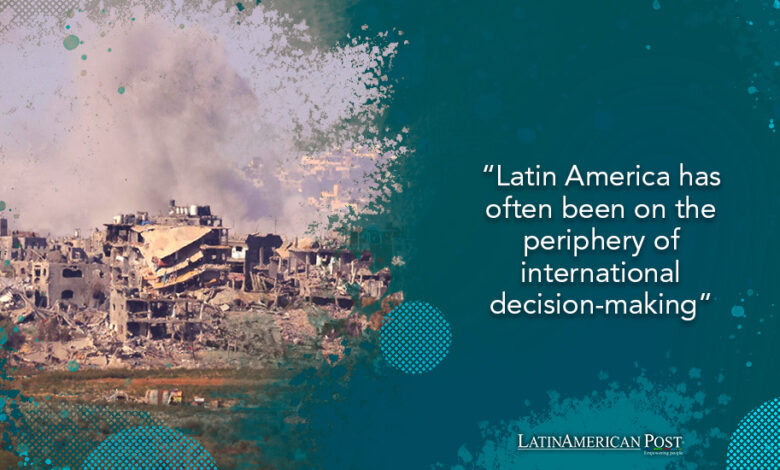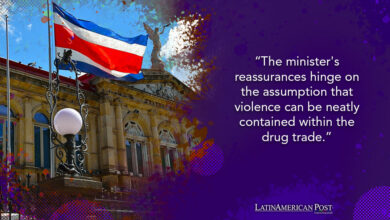Latin American Countries as Pivotal Players in Global Peacekeeping

In an era marred by escalating conflicts, Latin American countries, notably Mexico and Chile, emerge as crucial arbiters for international peace and justice. The two countries have asked the International Criminal Court (ICC) to investigate possible crimes in Gaza.
Latin American Diplomacy in Focus: Mexico and Chile’s Call for ICC Investigation
The recent escalation of violence between Israel and Hamas, characterized by a shocking offensive that resulted in the tragic loss of civilian lives and alleged war crimes, has rightfully captured global attention. However, the response from Latin American countries, particularly Mexico and Chile, signals a paradigm shift in international affairs.
The two countries have just asked the International Criminal Court (ICC) to investigate possible crimes in Gaza. Their referral to the International Criminal Court is not just a diplomatic maneuver but a bold statement on the global stage. This move underscores Latin American countries’ growing importance and responsibility in shaping a just and peaceful world order.
Historically, Latin America has often been on the periphery of international decision-making, frequently overshadowed by the dominance of Western powers. Yet, the region’s unique historical experience, marked by a blend of colonial legacies, internal conflicts, and a journey toward democratic stability, gives it a distinct perspective on international justice and human rights matters. The involvement of Mexico and Chile in the Israel-Hamas conflict is a testament to this emerging role.
Mexico’s Commitment to International Justice
Mexico’s foreign ministry, in its statement, underscored the necessity of the ICC as the appropriate forum to establish criminal responsibility, regardless of whether it involves the occupier or the occupied. This stance is pivotal in two ways. First, it reflects a commitment to the rule of law and the principles of international justice. Second, it signals a shift from a regional to a global outlook in foreign policy, wherein Latin American countries are willing to engage and contribute to resolving complex international issues.
Similarly, Chile’s stance, articulated by Foreign Minister Alberto van Klaveren, emphasizes the country’s interest in supporting investigations into any potential war crimes. This approach is commendable for its neutrality and focus on justice, irrespective of the actors involved. By doing so, Chile and Mexico set a precedent for other nations in the region to follow, fostering a collective Latin American voice in international affairs.
Latin America’s Growing Awareness
The involvement of these countries in such a high-profile conflict goes beyond mere diplomatic posturing. It represents a growing awareness of their potential to influence global peace and stability. With its diverse political and cultural landscape, Latin America has the opportunity to present alternative viewpoints and solutions that traditional power centers might overlook.
Furthermore, the approach taken by Mexico and Chile in this conflict highlights the importance of multilateralism and international cooperation. In a world where unilateral actions often dominate, their commitment to working through international institutions like the ICC reinforces the need for collaborative approaches to global challenges.
A Call for Inclusive and Equitable International Order
The escalating violence between Israel and Hamas and the resulting humanitarian crisis demand urgent and unbiased attention. The involvement of Latin America in this process is a step towards ensuring that international justice is not just a concept limited to the Western world but a universal standard upheld by all. The region’s active participation in these affairs should be seen as a call for a more inclusive and equitable international order.
Also read: Bolivia and Colombia’s Divergent Paths in Oil and Gas Industry
The role of Latin American countries in leading international affairs, especially in conflict resolution and promoting justice, is becoming increasingly significant. Mexico and Chile’s recent actions in the context of the Israel-Hamas conflict are exemplary of this new leadership role.
As the world navigates through turbulent times, the contribution of these countries in shaping a just and peaceful global community is commendable and necessary. It is time for the international community to recognize and support the active role of Latin America in global governance, for it is in the diversity of voices and perspectives that the most effective and lasting solutions to world problems are found.





